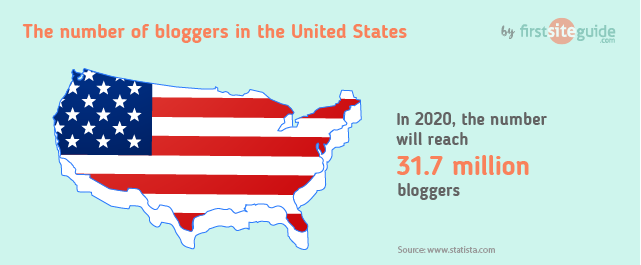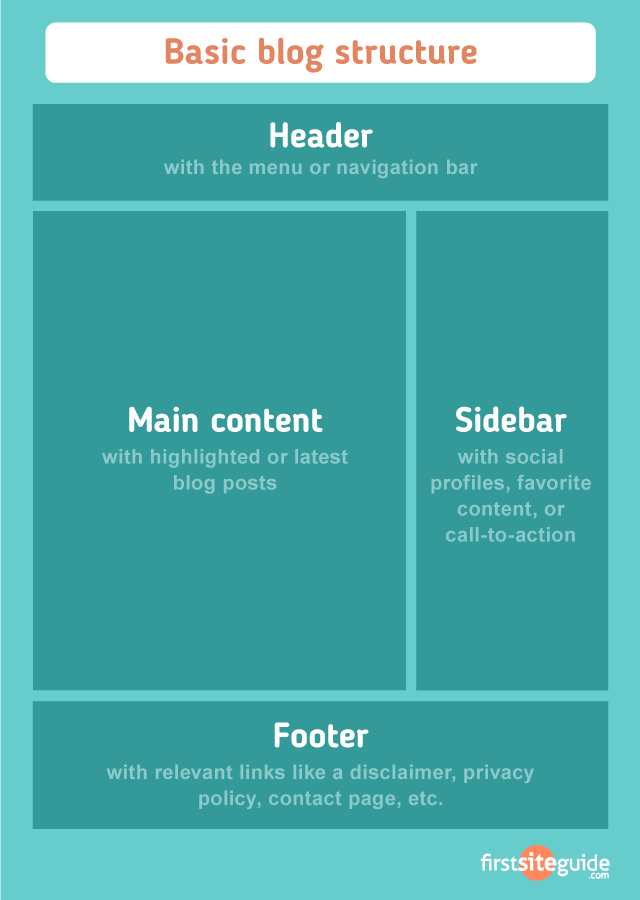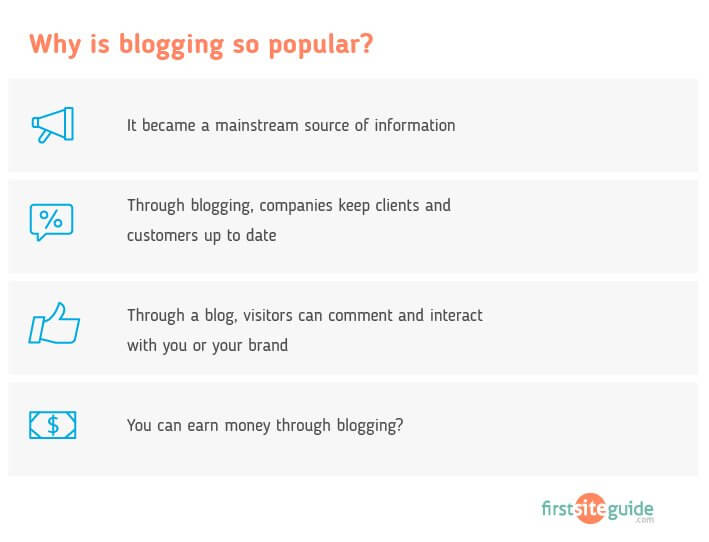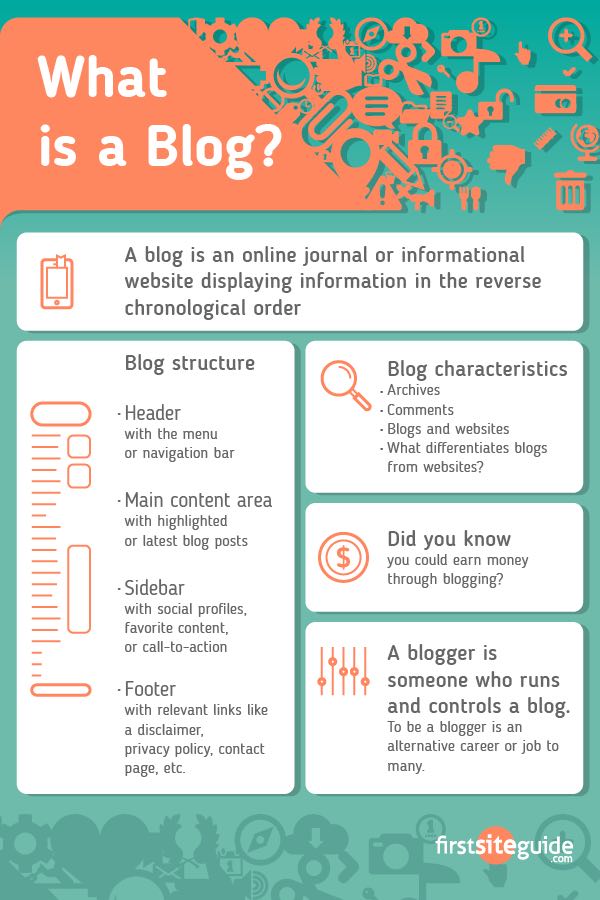How To Start A Blog For Free Google
Do you know what a blog is?
If you don't, then you've come to the right place. In 1994, when blogs began, a blog was more of a personal diary that people shared online. In this online journal, you could talk about your daily life or share about things that you were doing. Then, people saw an opportunity to communicate information in a new way online. Thus began the beautiful world of blogging.
What is a Blog?
Definition | Meaning of blog:
A blog (a shortened version of "weblog") is an online journal or informational website displaying information in reverse chronological order, with the latest posts appearing first, at the top. It is a platform where a writer or a group of writers share their views on an individual subject.
Today, there are more than 570 million blogs on the web. The number of bloggers in the USA alone is set to reach 31.7 million users by 2020.

What is the purpose of a blog?
There are many reasons to start a blog for personal use and only a handful of strong ones for business blogging. Blogging for business, projects, or anything else that might bring you money has a very straightforward purpose – to rank your website higher in Google SERPs, a.k.a. increase your visibility.
As a business, you rely on consumers to keep buying your products and services. As a new business, you rely on blogging to help you get to potential consumers and grab their attention. Without blogging, your website would remain invisible, whereas running a blog makes you searchable and competitive.
So, the main purpose of a blog is to connect you to the relevant audience. Another one is to boost your traffic and send quality leads to your website.
The more frequent and better your blog posts are, the higher the chances for your website to get discovered and visited by your target audience. This means that a blog is an effective lead generation tool. Add a great call to action (CTA) to your content, and it will convert your website traffic into high-quality leads. A blog also allows you to showcase your niche authority and build a brand.
When you use your niche knowledge for creating informative and engaging posts, it builds trust with your audience. Great blogging makes your business look more credible, which is especially important if your brand is still young and fairly unknown. It ensures presence online and niche authority at the same time.
[VIDEO] What is a blog?: ► Subscribe for more useful videos
Blog structure
The appearance of blogs has changed over time, and these days blogs include a wide variety of items and widgets. However, most blogs still include some standard features and structures.
Here are common features that a typical blog will include:
- Header with the menu or navigation bar.
- Main content area with highlighted or latest blog posts.
- Sidebar with social profiles, favorite content, or call-to-action.
- Footer with relevant links like a disclaimer, privacy policy, contact page, etc.

The above example is the basic structure of the average blog. Each item has its own importance and helps visitors to navigate through your blog.
Blogs and websites
Many people still wonder if there is any difference between a blog and a website. What is a blog and what is a website? It's even more challenging to differentiate between the two today. Many companies are integrating blogs into their websites as well, which further confuses the two.
What differentiates blogs from websites?
Blogs need frequent updates. Good examples of this include a food blog sharing meal recipes or a company writing about their industry news.
Blogs also promote reader engagement. Readers have a chance to comment and voice their different concerns and thoughts to the community. Blog owners update their site with new blog posts on a regular basis.
On the other hand, websites consist of the content presented on static pages. Static website owners rarely update their pages.
Key elements that identify a blog post from a static website page include a publishing date, author reference, categories, and tags within a byline. While not all blog posts have all of those byline elements, static website pages do not have any of these items. From a visitor's perspective, the content on a static site will not change from one visit to the next. However, depending on the blog owner's publishing schedule, the content on a blog will offer something new each day, week, or month.
What is blogging?
In the early 2000s, blogging emerged in a variety of forms when several political blogs were born. Blogs with how-to manuals also began to appear. Established institutions began to note the difference between journalism and blogging.
Definition of blogging
Blogging is a collection of skills that one needs to run and supervise a blog. This entails equipping a web page with tools to make the process of writing, posting, linking, and sharing content easier on the internet.
Why is blogging so popular?
It's important to mention that the popularity of blogging grows with each passing day!
To answer the question 'what is blogging', we need to look at the factors behind its rise.
In the early stages, blogs became mainstream, as news services began using them as tools for outreach and opinion forming. They became a new source of information.

Through blogging, businesses saw a positive way to improve their customer's level of satisfaction. Blogs assist companies in keeping clients and customers up to date. Also, the more people that visit your blog, the more exposure and trust your brand gets.
Personal and niche bloggers saw the potential to reach more people interested in specific topics. Through a blog, visitors can comment and interact with you or your brand which helps you to create a network of loyal followers.
Did you know that you could earn money through blogging? Once your blog receives enough attention and fans, you can investigate ways of monetizing your blog. Through the blog, you can offer your services and sell products.
Who is a blogger?
In recent times, bloggers have become famous for various reasons. Blogging has become an alternative career or side gig for many. Seeing this, even more, people are choosing to join the blogging ranks.
So who are bloggers? Bloggers are individuals who love sharing parts of their lives with you. They post on various topics from arts, home designs, carpentry, and finance articles. Bloggers are mobile and don't need to be in one place. They live on the internet!
Definition of a blogger
A blogger is someone who runs and controls a blog. He or she shares his or her opinion and knowledge on different topics for a target audience.
Why are many people blogging today?
Would you want to have a blog of your own? Yes!
Most people today are creating blogs for a variety of reasons. Every human being has their own story to tell. Through the internet, bloggers can communicate with a massive number of people.
Why is blogging so popular?
Blogs allow you to talk about any topic you are interested in and express your opinion. You'll find some bloggers writing on every activity that took place during their day. These activities may range from small things like waking up to major issues like human rights and climate change! Remember that as a blogger running your own blog, you need to focus on the topics that you are passionate about, and through that focus strive to become one of the best blogs on the web.
Are bloggers getting paid?
Our blogging industry survey proves that bloggers do earn money, but this is not a get-rich-quick kind of profession. Before you can start monetizing your blog, you need to build both your Google SERPs ranking and your niche influence. Those tasks take a lot of time and quality content. Money-making opportunities won't present themselves until you've gained some credibility in the field. So, get down to business.
Here's how you can make good money as a top-ranked niche blogger:
- Selling ad space on your blog privately or via Google AdSense.
- Becoming an affiliate partner privately or through ads networks.
- Selling your own digital products such as eBooks and tutorials.
- Selling memberships for access to exclusive content or advice.
- Using your blog as a content marketing tool for your business.
If you're starting a blog as a way to market and boost your existing business, you probably won't be selling ad space or memberships. However, you can create and start offering exclusive digital products such as eBooks, guides, or online courses as a lead capturing tool in exchange for visitors' email addresses. That way, you'll nudge them one step further down your sales funnel.
Want to start a blog on your own?
Creating your own personal blog takes a few steps. First, you need to decide on a name for your blog, also called a domain name. Then, you need to choose the best blogging platform for your needs. We recommend going with a self-hosted platform. There are a few choices when it comes to self-hosted platforms, but the most popular is WordPress.org.
The next step is to choose a web hosting service. For new bloggers, we strongly recommend Bluehost, a company that powers over 2 million websites worldwide. You will get a Free domain name when you sign up with them and if you don't like their services, they offer a 30-day money-back guarantee.
Recommended tool:
Conclusion
We hope that you've learned some helpful information about the world of blogging. If you've managed to start a blog, then your next step is to work on your blog content in order to keep your future readers satisfied and engaged. Feel free to check out our extensive list of blogging resources which will help you to run and grow your new blog!

How To Start A Blog For Free Google
Source: https://firstsiteguide.com/what-is-blog/
Posted by: rodriguezwiterestich.blogspot.com

0 Response to "How To Start A Blog For Free Google"
Post a Comment